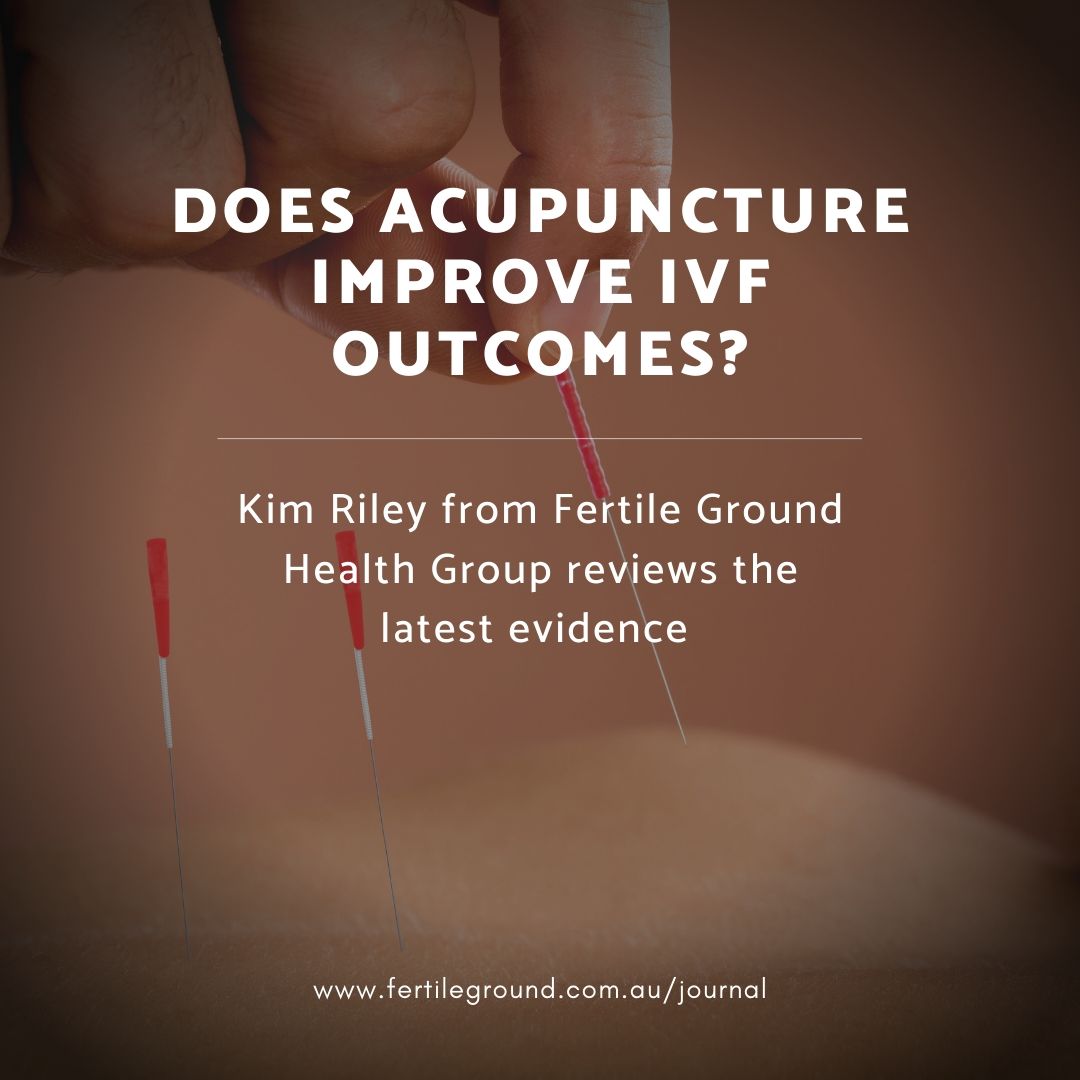
By Kim Riley
At Fertile Ground Health Group, many of our fertility acupuncture clients have been considering IVF, or are already undergoing IVF treatment. Past research has been both supportive and unsupportive of the efficacy of acupuncture during IVF treatment and we are often asked what the latest research says. So we figured an update on what the research is saying on this topic is a great way to start 2020.
In 2019, two rigorous systematic reviews and meta-analyses were published which had positive findings for the efficacy of acupuncture alongside IVF treatment. In both meta-analyses (Smith et al. & Xie et al.), acupuncture was compared to sham acupuncture or to no treatment. In both studies, there was no difference in clinical pregnancy rates or live birth outcomes when acupuncture was compared to sham acupuncture. However, when compared to no treatment, acupuncture was found to:
There were also a number of variable factors affecting results. These can be summarised as:
When looking at the above statistics it is notable that there are differences in the findings of each meta-analysis. Ongoing pregnancy rate was not assessed by Xie et al. and they also did not find a significant difference in live birth rate when acupuncture was compared to no treatment or to miscarriage rates when acupuncture was compared to all controls. Their inclusion of studies assessing the efficacy of acupuncture in reducing pain associated with egg retrieval is the likely reason for such differences. Smith et al. excluded these studies and included only studies in which a birth outcome was the goal, citing differences in the mechanism of action between acupuncture for analgesia or for reproductive support as the rationale for their exclusion. Pooling different types of studies together will change outcomes.
Sham acupuncture is the use of penetrating or non-penetrating acupuncture needles that are placed on or off acupuncture points. It is important to understand that the use of sham acupuncture as a control is controversial as it is not inert and therefore confounds results.
As with any research, medicine continues to evolve as the research is conducted. All included studies were conducted before the use of preimplantation genetic testing (PGT) became widespread in IVF clinics. Today, it is more common for couples to use PGT testing to ensure only genetically sound embryos are implanted, increasing their chances of delivering a healthy baby. Published IVF studies also largely include fresh autologous embryo transfers (embryos made using the mother’s own egg, not a donor egg or embryo and transferred fresh). No doubt studies in the future may test acupuncture as an effective adjuvant to embryos that have undergone PGT, frozen embryos transfers or embryos from donor eggs.
References:
Smith CA, Armour M, Shewamene Z, Tan HY, Norman RJ, Johnson NP. Acupuncture performed around the time of embryo transfer: A systematic review and meta-analysis. Reprod Biomed Online.2019;38(3):364–379.
Xie ZY, Peng ZH, Yao B, et al. The effects of acupuncture on pregnancy outcomes of in vitro fertilization: A systematic review and meta-analysis. BMC Complement Altern Med.2019;19(1):131.
Hullender Rubin LE. Point of Influence: What is the Role of Acupuncture in In Vitro Fertilization Outcomes? Med Acupunct. 2019 Dec
Kim Riley is a registered Chinese Medicine herbalist and Acupuncturist with a degree in Health Sciences Traditional Chinese medicine. In her 7 years of clinical practice, Kim has always focused on female reproductive health, assisting women to optimise their fertility, and to find answers to a wide range of gyneacological issues.
Kim has a passion for whole-systems Chinese medicine and her keen interest in the latest research and modern understanding of physiology is balanced by the wisdom of centuries of Chinese medical knowledge passed down through each generation.